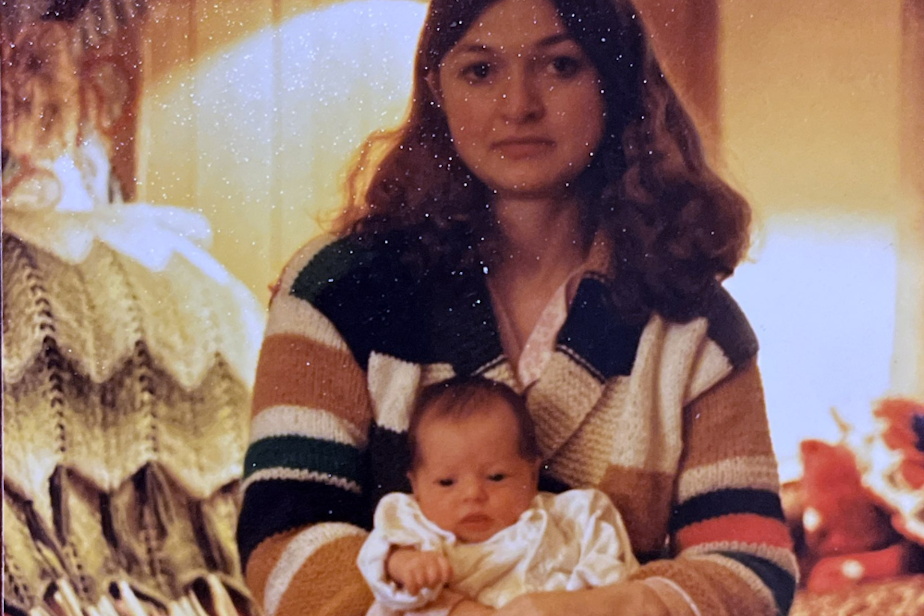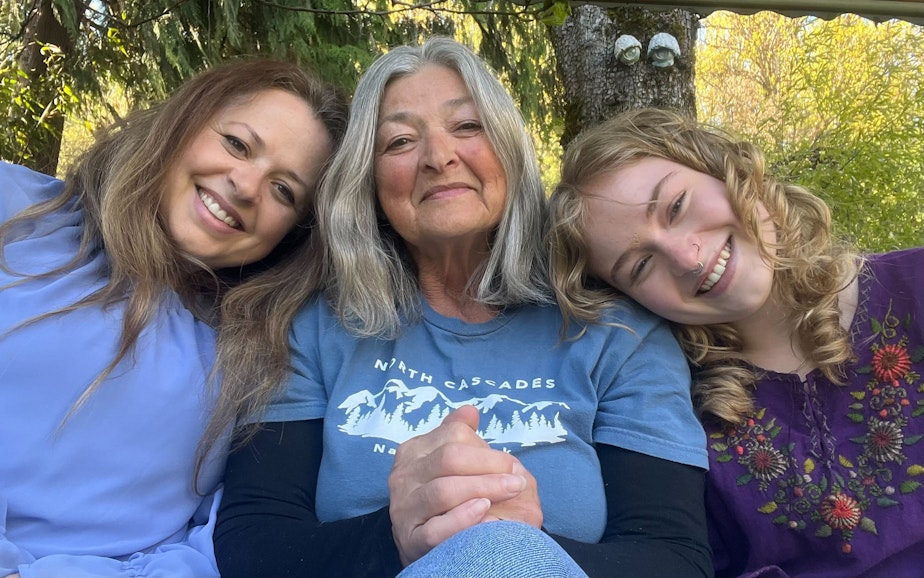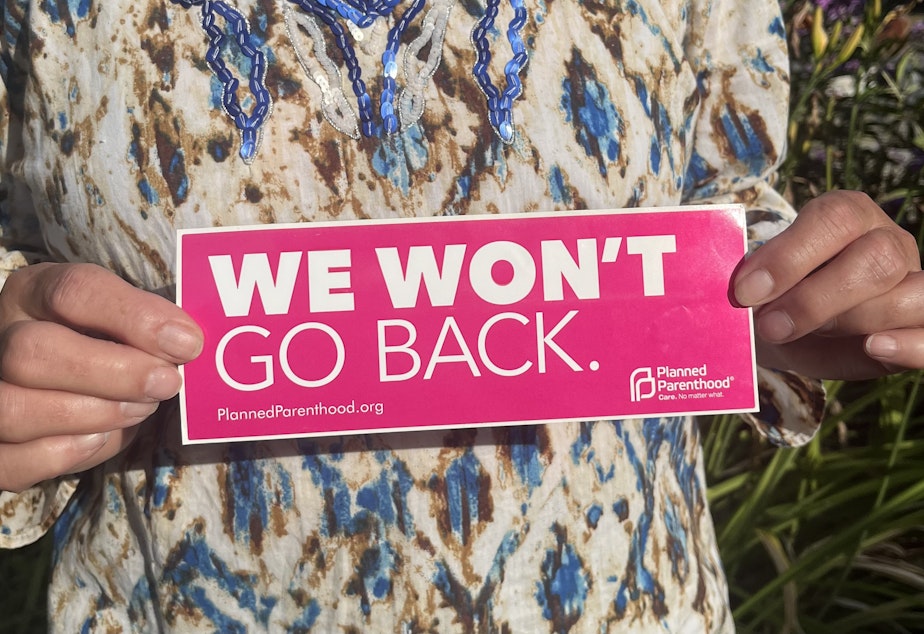At 16, my grandma had an abortion. At 18, I’m telling her story
In the summer of 1972, the year before Roe v. Wade made abortion legal nationwide, Elaine Fichter was 16 years old and eight weeks pregnant.
Fichter lived in Washington state where abortion was already legal, and she made the choice to terminate her pregnancy.
Fifty years later, Fichter’s grandchild, RadioActive’s Natalie Lahr, explores how her grandmother’s decision impacted both of their futures.
This story discusses the process of getting an abortion in some detail. It also references parental abuse. Please take care when reading or listening.
[RadioActive Youth Media is KUOW's radio journalism and audio storytelling program for young people. This story was entirely youth-produced, from the writing to the audio editing.]
I
t’s been more than 50 years since my grandma had an abortion.
She remembers getting the appointment itself. It was easy — she saw a gynecologist at a clinic nearby.
She remembers the room — it was kind of a weird green color with a picture of a woodland stream on the ceiling. She remembers a sound, sort of like a vacuum. Later, she remembers cramping and bleeding.
Sponsored
My grandma says she never doubted her choice to get an abortion. At 16, she just wasn’t ready to be a parent, and her mother didn’t set a great example.
"My mom was not real nurturing, motherly," she said. "I don't remember getting hugs — that wasn't her style. If she had a hairbrush or a flyswatter in her hand, she'd smack you with it to get her point across. Half the time I didn't think she liked me at all."
My grandma knew she wanted to be a parent eventually. But she needed to become a better parent than her mom.
She spent the next few years determined to learn how.
Sponsored
"I tried to do research and read books — not that it made me an expert, and I certainly made mistakes. But I got a better idea of how to talk to a child and how not to, you know, smack them with a hairbrush," she said. "And [I learned] how to communicate with them and try not to repeat the way that my mother parented."
My grandma's abortion gave her time to heal, learn, and ultimately break her family’s cycle of abuse. She went on to have two children, both delivered by the same doctor who performed her abortion.

"A day hasn't gone by that I've regretted [the abortion]," she said. "It was a decision that I needed to make, and something that had to be done."
My grandma is not alone in this experience. Abortion is a part of many people’s lives.
Sponsored
"It could be the neighbor, it could be the lady in the grocery store, you don't know," she said. "But these are still people, good people — they just had to make a decision in their life to have an abortion. And it was their choice to do that."
But in 2022, in a landmark decision, the Supreme Court overturned Roe v. Wade, making it extremely difficult to get an abortion in many areas of the country.
Abortion is still legal in Washington. But in other states, people can’t make the same choice that my grandma made — a choice that changed her life for the better.

Sponsored
Now, my grandma is enjoying life in her 60s. She collects sea glass and golden retrievers. She loves John Prine and she signs her checks with a peace sign. She is close with her children and her grandchildren in a way she never was with her own mother.
"I probably wouldn't have had [your mother] if I wouldn't have had the abortion," she told me. "So she wouldn't have had you. And we wouldn't be talking. I wouldn't be looking at your beautiful face."
Many stories of abortion end with the procedure. My grandmother’s abortion is just the beginning of her story, of my mother’s story, and of my own.
This story was produced in a RadioActive Youth Media introductory workshop for high school age youth. Production assistance by Troy Landrum Jr. Edited and prepared for the web by Kelsey Kupferer. Music is "Clouds at the Gap" by Blue Dot Sessions.
Sponsored
Find RadioActive on Instagram, TikTok, YouTube and Facebook, and on the RadioActive podcast.
Support for KUOW's RadioActive comes from the Bill & Melinda Gates Foundation Discovery Center and BECU.




